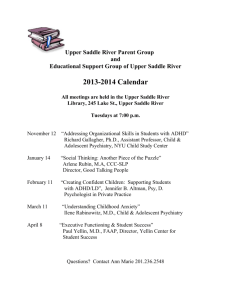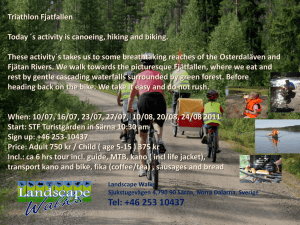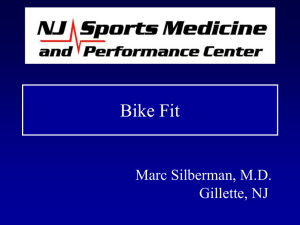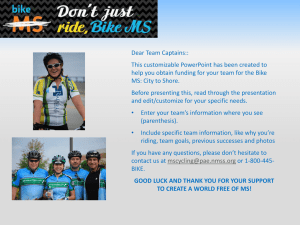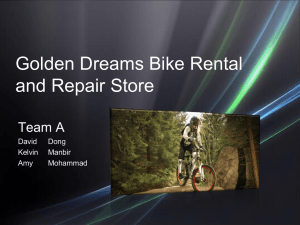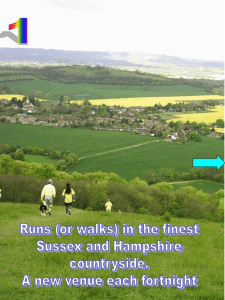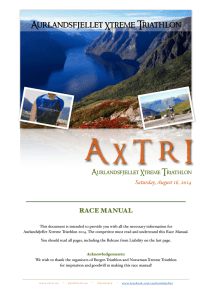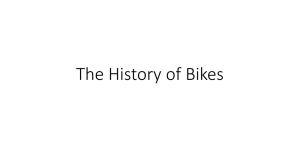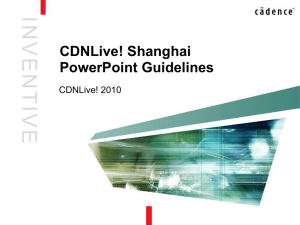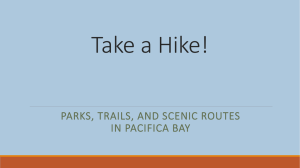Bike Fit and Pedal Strategy (Oct 2012)
advertisement
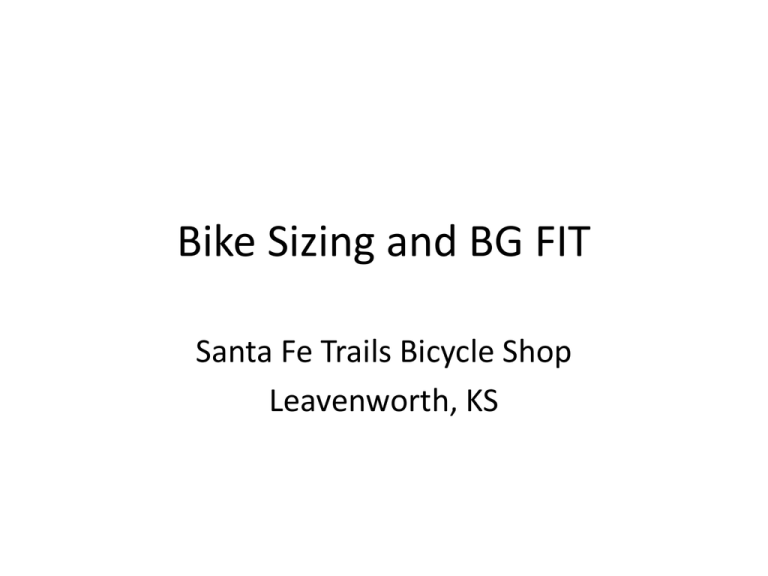
Bike Sizing and BG FIT Santa Fe Trails Bicycle Shop Leavenworth, KS Select the Right Bike • Road – Recreational • Century/Charity Rides • Local/occasional – Racing • Triathlon/Time Trials – Olympic Distance – Ironman • Criterium/Road Racing – Commuting • Trail • Commuting Consider Your Goals • Completing a triathlon? – Placing as an Age Grouper? – Achieving a PR? • Commuting to work? • Riding on Trails? Riding Possibilities of Your Area • • • • • • Low traffic country roads. Longest rails to trails in the U.S. Multiple Triathlons Multiple Century Rides Multiple Criteriums/Time Trials/Road Races Multiple Mountain Bike Trails Analyze Your Tendencies • • • • Win at all costs? Fun oriented? Latest technology? What type of riding do your friends do? Road Bikes • • • • • Light weight Efficient Geared for speed. Aerodynamic Best for group rides – Century – Criterium – Club • Optimum for entry level triathlons Mountain Bikes • • • • • Comfortable Upright Position Fat, Shock absorbent tires Suspension forks and frames Plenty of load carrying capacity Ideal for single-track, commuting, rails to trails. • Inexpensive Hybrids • Commuting – Faster than a mountain bike – More durable than a road bike • Trail bike – Works well on improved trails – Myriad attachments possible Time Trial Bike • Aerodynamic Frame – Usually Carbon Fiber • Maximum Speed and Pedaling Efficiency • Steep Seat Tube Angle 76 Degrees versus a road 73 Degrees • Top Tube Length is Shorter 539 versus 565 Time Trial • Steep seat tube angle – Aero position with flatter back – Rotates you forward, allowing hip and knee angles to remain open. – Less stressful on back and hamstring muscles – Knees should not protrude in or out. – Line from ear to elbow should be perpendicular to the ground. Best Approach • Go to your local bike shop (SURPRISE!) • Try bikes that you are considering – More than a sum of their parts – Frames, components, geometry varies • Get fit by an expert • Get refit as the season progresses Frame Size • Stand over is the distance from the ground to the top of the top tube. • Frame size measured in Centimeters – Center of BB to top of seat tube – Size = Inseam in Cm X .67 Saddle Height • Saddle Height – measured from center of bb to top of saddle – Heel on the pedal, leg is locked. • Formula = Inseam in Cm X .883 – Formula gets you to within 1 – 2 Cm – Variables • Leg length • Flexibility Saddle Position • Generally thought that knee should be over the pedal when cranks are level. • Best set up by a professional • Saddle should be level for women • Saddle should be level to 2 degree rise for men. Top Tube and Stem • Torso length + Arm Length divided by 2 +4 = Top Tube and Stem Length • Individual Comfort is Key • Flexibility as the season progresses • Frames come with stock stem length. • We provide free stem replacement ($45 value) Saddle Sizes • Narrow • Medium • Wide Pedals • Different Types – Speedplay – Zero/Light Action/X Series – Shimano SPDR/SPD/Compatible – Look • • • • Float/No float Foot Burn. Large Feet Wide Stance – We now have 5 Options Shoes • • • • • Rigid – Specialized Shoes Stiffness Index Comfort Footbeds Red/Blue/Green Fore Foot Wedge LLD – Cleat placement/cleat shims Handlebar Width • Cm from Shoulder Blade to Shoulder Blade • Usually 42, 44 or 46 • Can be measured from side to side or center to center by manufacturer References New Cyclists Handbook, by Ben Hewitt, Rodale Inc. 2005 Triathlon 101,Essentials for Multisport Success, by John Mora, Human Kinetics. 2009 Training Plans For Cyclists, by Gale Bernhardt, Velo Press, 2009 Specialized Road 2013 Catalog Greg Lemond’s Complete Book of Bicycling, Perigree Books, 1987 Pedal Stroke Mechanics Main Points 1. Get the right fit (foot, leg, hip, body alignment) 2. Learn to use your gears 3. Stay seated as much as practical on hills 4. Develop a good cadence • NOTE—From this point on, open in “Notes Page” to read the Key Points of each slide. Foot/Cleat Position Pedal Stroke Made Easy Drills • • • • Spinning classes High cadence spin up drill Isolated leg training Learn to use your gears Optimal Cadence • High cadence – Works cardiovascular system more – Reduces workload for each pedal stroke • Low cadence – Lower oxygen consumption – Greater workload for each pedal stroke • Optimal balance is different for everyone, experiment to see what works best for you How to Attack Hills? Rolling hills •Use momentum to carry you up start of hill •Short hills, power hard through lower portion •Shift through rear sprocket cluster as cadence drops •Hopefully stay in big chain ring up front •Near the end, get out of saddle and power over the top Long steady climbs •Don’t power too hard at lower end – this could cause you to go anaerobic •Find comfortable cadence and settle in – maybe around 70 to 75 rpms •Use your gears! •Relax hands and upper body – no head/shoulder bobbing •Shift around on saddle – scoot back slightly •Stand only to regain momentum – not an efficient way to climb •Near top explode out of saddle and power over the crest Hills (power) Flats (speed) Cycle Computer Advanced Basic Strength Training to Improve Your Biking Muscles • • • • • Walking lunge and/or step up Calf Raise Leg extensions Leg curls Squats and/or leg press Bike Trainer Resistance trainers: wind, magnetic, or fluid $100 - $400 Computer-based trainers $700 - $2000 Rollers $100 - $300
